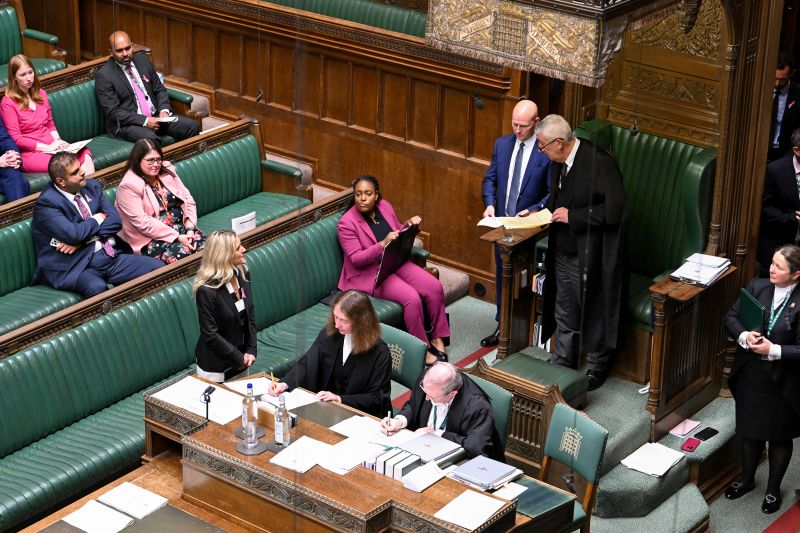British members of parliament have voted to legalize assisted dying, approving a contentious proposal that would make the United Kingdom one of a small handful of nations to allow terminally ill people to end their lives.
Lawmakers in the House of Commons voted by 330 to 275 to support the bill, after an hours-long debate in the chamber and a years-long campaign by high-profile figures that drew on emotional first-hand testimony.
Britain is now set to join a small club of nations to have legalized the process, and one of the largest by population to allow it. The bill must still clear the House of Lords and parliamentary committees, but Friday’s vote marked the most important hurdle.
It allows people with a terminal condition and less than six months to live to take a substance to end their lives, as long as they are capable of making the decision themselves. Two doctors, and then a High Court judge, would need to sign off on the choice.
Canada, New Zealand, Spain and most of Australia allow assisted dying in some form, as do several US states including Oregon, Washington and California.
Debate over the issue sharply divided lawmakers, many of whom have labored to choose a side during an unusually strained week in Westminster. MPs were given a free vote on the issue, meaning they can support either side according to their conscience, with no political ramifications.
In an open letter to MPs ahead of the vote, Esther Rantzen, a BBC TV presenter with advanced lung cancer who has become a prominent supporter of assisted dying, wrote: “Under our current criminal law the only choice for most people who are terminally ill, if they are facing an agonising death, is between suffering, Switzerland or suicide.” Rantzen has previously said she is herself considering using the Swiss assisted dying clinic Dignitas to end her life.
She urged MPs on all sides to vote on the issue. “This will probably not come before Parliament as an issue to debate for another decade,” she wrote. “How many more will be forced to suffer until then?”
An emotional debate
It is rare that British lawmakers are asked to decide for themselves on such an intimate issue, and many have agonized this week over how they will vote.
Friday’s emotive discussions in the House of Commons bore similarities to previous free votes concerning abortion and same-sex marriage.
Proponents of the bill say assisted dying can bring dignity to terminal patients at the end of their lives, averting months of suffering and physical decline, and easing pressure on the country’s palliative, or end-of-life, services. Polling indicates that a comfortable majority of the public supports assisted dying.
In her open letter, Rantzen wrote: “The tragic truth is that no matter how excellent the palliative care is, it cannot prevent some kinds of suffering, fecal vomiting for example, or suffocating to death, or deep-rooted agony.”
But critics fear the bill’s guardrails are not stringent enough, and suggest patients could feel pressured to opt for an assisted death only to avoid becoming a burden on their families. Others have concerns that the bill has been sprung on MPs – hundreds of whom are in their first few months in the job following July’s election – without a thorough impact assessment or time to consider the proposal.
“I really believe that Labour got elected because the NHS is such a mess… we’ve got to sort the NHS out before we go down this route,” she said. “Pressing ahead now is ignoring the imperative we’ve got to address the woefully underfunded palliative system.”
The proposed bill is broadly in line with the Oregon model, and does not go as far as Switzerland, the Netherlands and Canada, which allow assisted death in cases of suffering, not just for terminally ill people. It differs from euthanasia, the process in which another person deliberately ends someone’s life to relieve suffering.
It is currently a crime to help somebody die in England and Wales, punishable by up to 14 years in prison. Performing euthanasia on a person, meanwhile, is considered murder or manslaughter.
This is a breaking story. More details soon…



























